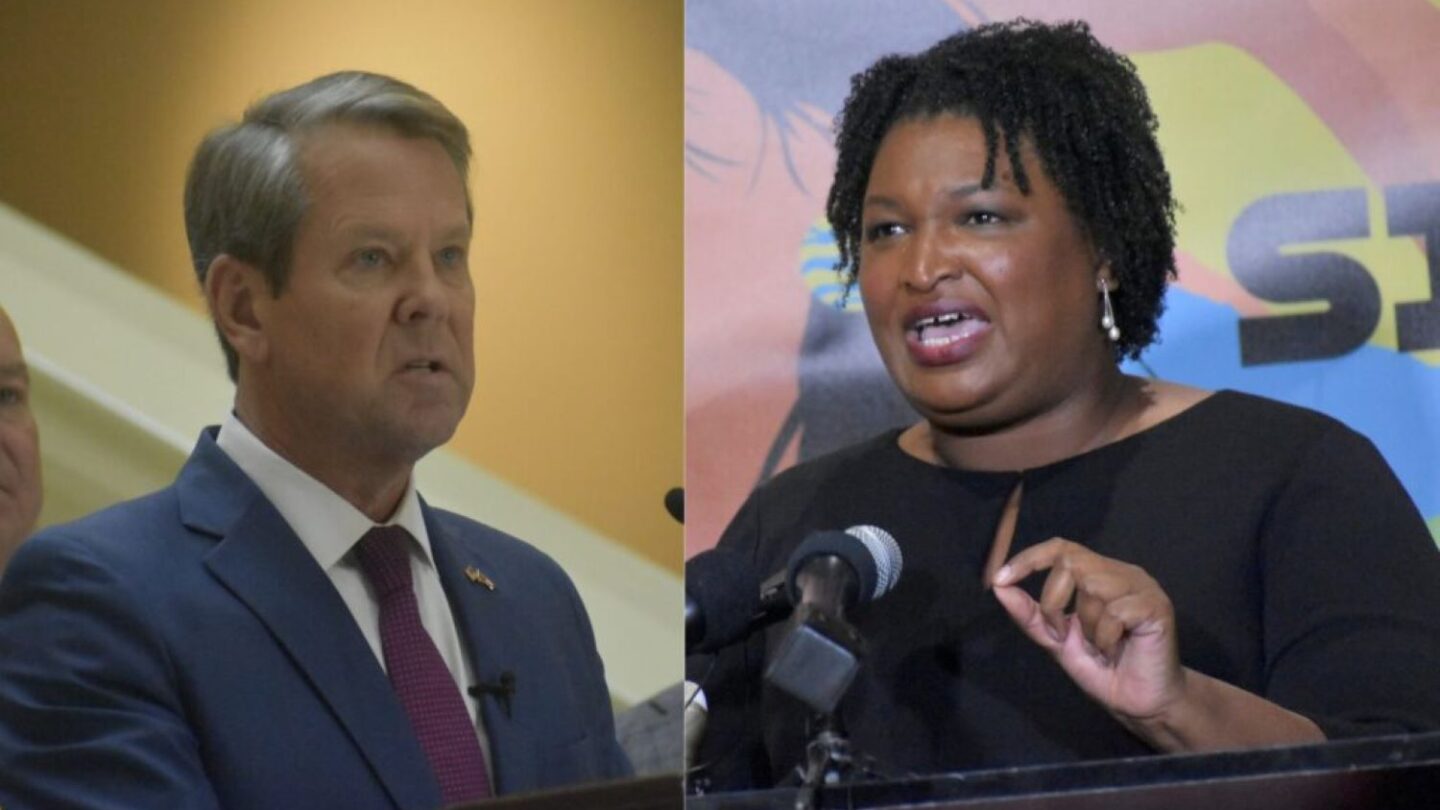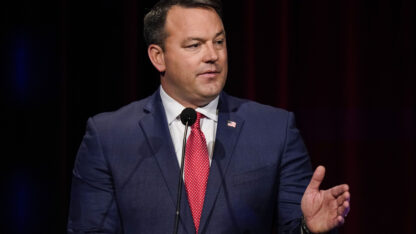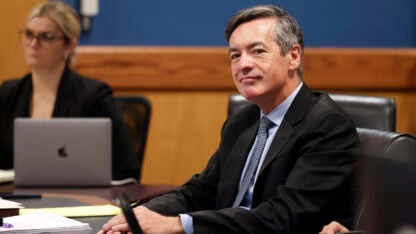Gov. Brian Kemp and Democrat Stacey Abrams sparred over abortion access and other key issues in the last debate before Georgia voters finish casting their ballots in this year’s midterm election.
Most notably, a lengthy exchange during WSB-TV’s debate led to the most substantive discussion on the issue of abortion between two candidates who hold vastly different views.
Kemp has largely avoided the issue since the U.S. Supreme Court overturned Roe v. Wade this summer, paving the way for Georgia’s restrictive abortion legislation – which Kemp signed into law in 2019 – to take effect.
But Kemp was pressed on his position Sunday night and asked whether he would sign off on stricter rules if lawmakers decide to go further than Georgia’s new six-week ban, which is being challenged in court.
Polling has shown the state’s law is unpopular with most Georgians. But while abortion access is a dominant issue in this election, economic concerns have consistently proven the most pressing for many voters.
“It’s not my desire to go move the needle any further on this issue,” Kemp said. “We’ve been dealing with this issue for three years. That’s where the General Assembly was. I personally don’t see a need to go back. But when you’re governor, you have to deal with all kinds of legislative issues that are out there. So, we’ll look at those when the time comes.”
Abrams, who has campaigned aggressively on abortion access, was also cornered on whether she would support a limit.
“As I have said, abortion is a medical choice. And as such, it should be that a woman has the ability to make a decision until viability and that decision about viability should not impact her life or her health,” Abrams said. “That is a decision that should be made between a doctor and a woman as a medical choice.
“What I’ve also always said is that there should not be an arbitrary timeline set by men who do not understand biology. This is a law that tells women they have to make a decision about their pregnancy before they know they’re pregnant,” she said.
Kemp also revealed during the back-and-forth that his wife, Marty Kemp, had a miscarriage early in their marriage, personalizing the issue for him in a new way.
“My wife and I both had a hard time having our first child. She miscarried. It is a tragic, traumatic situation,” he said.
The two also disagreed over whether women who have a miscarriage might find themselves in legal trouble.
“The tragic stories of miscarriage should not be political fodder, but they should also not be fodder for investigation,” Abrams said, who said “we know that in Georgia women are not safe from investigation.”
Kemp claimed women who have a miscarriage face no threat of prosecution but couldn’t say the same for providers. “Women are not going to be prosecuted under this piece of legislation. Doctors who perform illegal abortions would be,” he said.
The debate was held the night before new polling was released showing Kemp hovering just above the 50% threshold needed to avoid a runoff in the Nov. 8 election. But the race has also tightened since the last Atlanta Journal-Constitution/University of Georgia poll in early October.
Of those polled, 51% said they supported Kemp and 44% backed Abrams – a difference of 7 points, closing from 10 points in early October.
Economy
The candidates are also a study in contrasts when it comes to how best to ease the economic pressures facing Georgians.
Kemp has touted his record coming out of the pandemic and pinned the blame for rising inflation on the Biden administration. He has campaigned on a pledge to issue another $1 billion tax refund and award a one-time property tax grant to address housing costs.
“Americans are hurting right now because of a disastrous policy agenda by Joe Biden and the Democrats who have complete control in Washington D.C.,” Kemp said. “Thankfully, in Georgia, because we were open even when Ms. Abrams didn’t want us to be, our economy has been incredibly resilient.”
Abrams criticized Kemp for not having a comprehensive plan to address the root causes of rising housing costs. “Piecemeal solutions and stopgap dollars do not mean that you have a plan,” she said.
And Abrams pushed back on the governor’s portrayal of her pandemic-era stances, saying she urged caution.
“No one wanted lockdowns, no one likes lockdowns. But we do want people to survive,” Abrams said.
Abrams has said she supports issuing another tax refund, but she has also proposed using the state’s $6.6 billion budget surplus to expand Medicaid, increase teacher pay and support new spending on other programs.
Crime
Abrams raised eyebrows with a comment she made in response to Kemp’s claim that he has more than 100 sheriffs who have endorsed him.
“I’m not a member of the good ol’ boys club, so no, I don’t have 107 sheriffs who want to be able to take Black people off the streets, who want to be able to go without accountability,” Abrams said. “I don’t believe every Sheriff wants that. But I do know that we need a governor who believes in both defending law enforcement and also defending the people of Georgia.”
Sunday night’s debate is the only one that has featured Abrams and Kemp side by side. They debated alongside the Libertarian in the race, Shane Hazel, during the Atlanta Press Club Loudermilk-Young Debate Series in Atlanta in mid-October. Hazel played the role of disrupter in the first debate as he laced into both candidates and parties.
A replay of the WSB-TB debate can be seen here. The Atlanta Press Club debate can be watched here.









